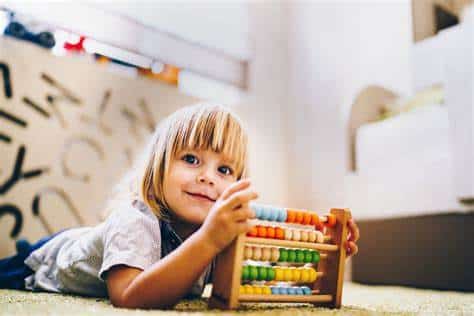Children thrive in routine for several important reasons. A consistent and structured routine provides them with a sense of security, predictability, and a foundation for healthy development.
Here are 14 reasons why routine is so beneficial for children:
1) Routines Provide a Sense of Security
Routine provides children with a sense of safety and security. Knowing what to expect next reduces anxiety and uncertainty, helping them feel more comfortable and at ease.
2) Routines Create Predictability
Children are still developing their understanding of the world around them. A routine helps them predict what comes next, making their environment feel more manageable and understandable.
3) Routines Promote Emotional Regulation
A regular routine helps children learn to regulate their emotions. Knowing when to expect meals, naps, and playtime allows them to anticipate their needs and reduces the likelihood of becoming over-tired, hungry, or stressed.

4) Healthy Sleep Patterns are Part of Routine
A consistent sleep routine helps regulate children’s internal clocks, making it easier for them to fall asleep and wake up at the same times each day. This supports their overall sleep quality and quantity.
5) Routines Offer Structure for Learning
Routine creates a structured environment that is conducive to learning. When children know what to expect, they can focus more on exploring and absorbing new information.
6) Routines Help Develop Independence
Routine fosters a sense of independence. When children know what’s expected of them, they can take more initiative and complete tasks on their own.
7) Routines Establish Healthy Habits
Regular routines encourage the development of healthy habits, such as regular meal times, brushing teeth, and washing hands. These habits contribute to children’s overall well-being.
8) Routines Help Develop Social and Emotional Skills
Routine helps children develop social skills. It offers opportunities for interaction with caregivers, peers, and siblings, promoting socialization and cooperation.
9) Routines Teach Time Management
Learning to manage time is an important life skill. Routine teaches children the concept of time and helps them understand how to plan and organize their day.
10) Routines Can Reduce Power Struggles
Children are less likely to resist or oppose activities when they are part of a routine. They are more likely to cooperate because they understand that certain activities are non-negotiable.
11) Routines Offer Smooth Transitions
Transitions between activities, such as leaving home for daycare or going to bed, can be challenging for children. A routine helps smooth out these transitions by giving them a clear sequence of events.

12) Routines Help Cognitive Development
Predictable routines support cognitive development by allowing children to make connections between actions and outcomes. This helps with memory and understanding cause-and-effect relationships.
13) Routines Build Confidence
Successfully following a routine builds children’s confidence. They feel a sense of accomplishment as they complete tasks and activities they’re familiar with.
14) Routines Promote Family Bonding
Routines can involve shared activities, such as family meals or bedtime stories, that create opportunities for bonding and connection.
In summary, routine offers children stability, a sense of control, and a structured framework in which they can explore, learn, and develop. While flexibility is important, a balanced routine provides the necessary structure to help children thrive emotionally, socially, cognitively, and physically.
